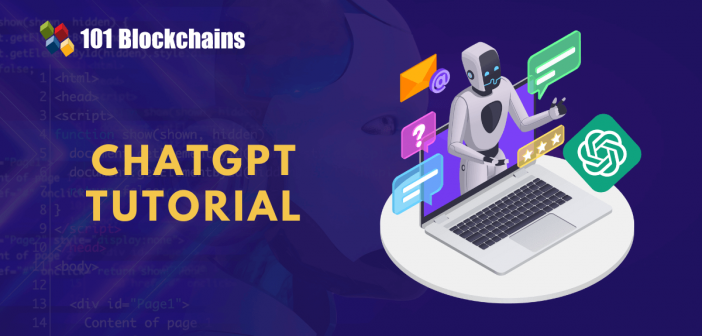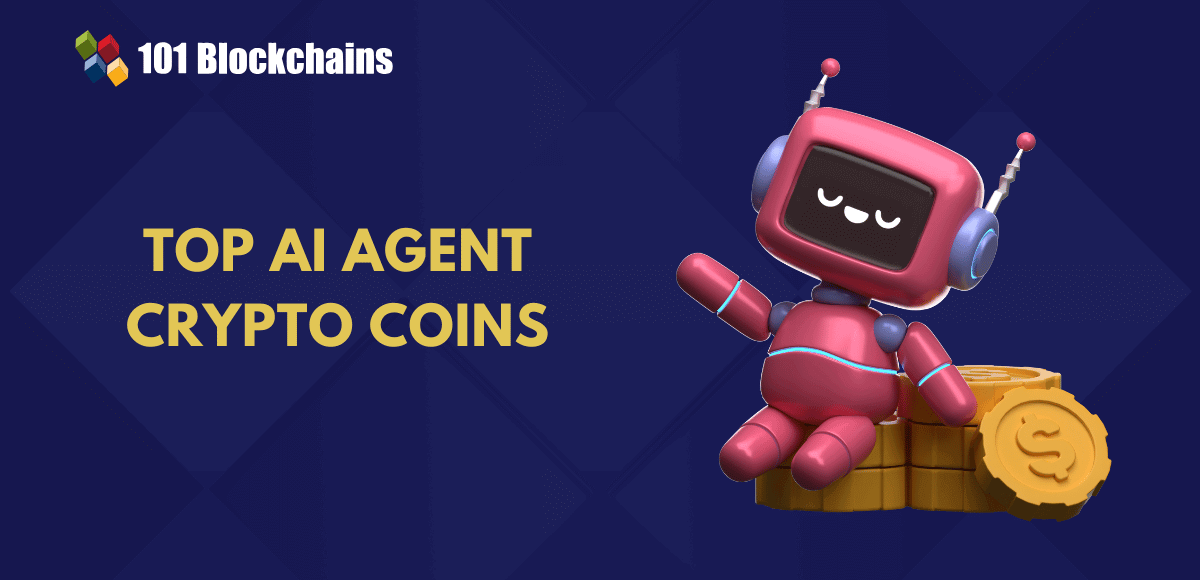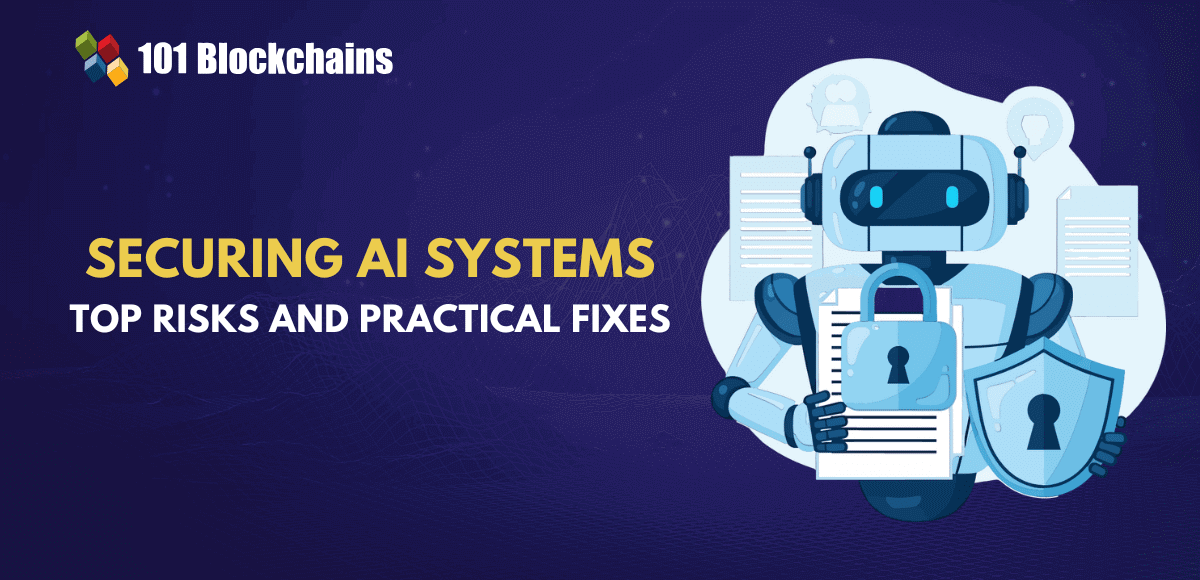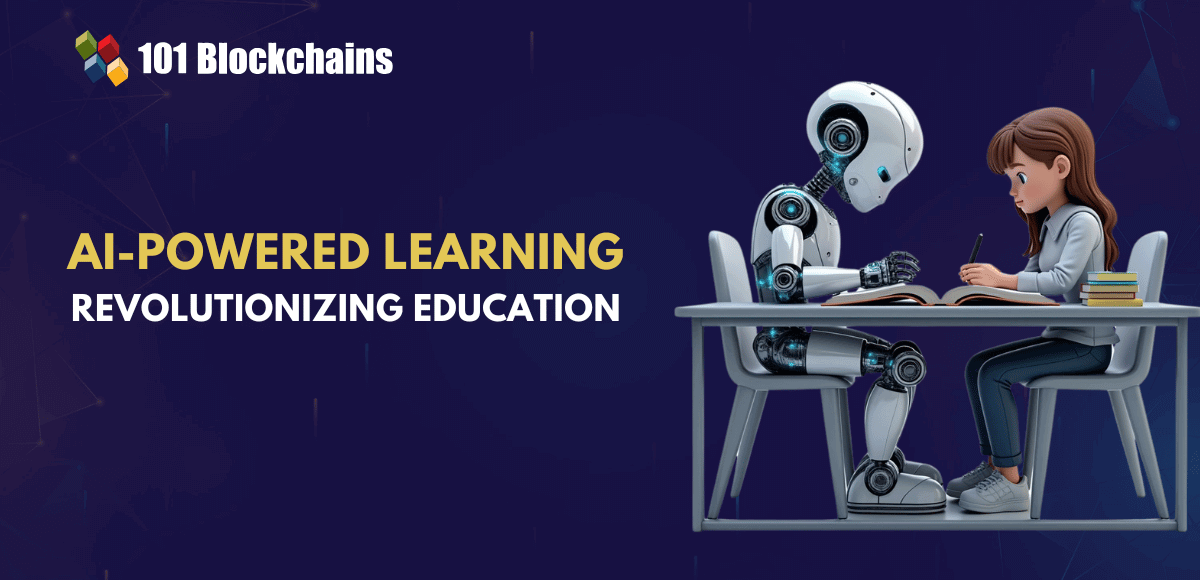Learn how blockchain truly works, master key definitions, and uncover what makes smart contracts so "smart." Dive into the fundamentals, gain valuable insights, and start your blockchain journey today!

- AI & ChatGPT
James Howell
- on May 19, 2023
A Beginners Guide to ChatGPT
ChatGPT is one of the most common terms for the modern tech community, as it provides many innovative applications. Unless you have shut down access to the internet, you must have come across mentions of ChatGPT on different platforms. If you want a reliable ChatGPT tutorial, you can use the tool to generate a tailored explanation. Yes, the primary functionality of ChatGPT is to answer user queries according to pre-trained data.
The hype around ChatGPT is one of the prominent reasons for learning about the AI language model and its working. Most importantly, comprehensive knowledge of the working of ChatGPT can help you identify its potential for different use cases. The following post provides a detailed introduction to ChatGPT and how it works with an in-depth explanation.
Definition of ChatGPT
Since November 2022, the number of online searches for “What is ChatGPT and how does it work?” has been increasing. It is one of the most disruptive examples of innovation, with a massive impact across different industries. The simple definitions of ChatGPT describe it as an online AI tool created by OpenAI. It helps in generating interactive text responses to queries and text prompts.
For example, you can ask a question to ChatGPT, and it would respond in well-crafted sentences. From the technical perspective, the definition of ChatGPT explained for beginners would point to large language models. Have you ever thought about the meaning of GPT in ChatGPT? GPT stands for Generative Pre-trained Transformer, an AI model used for text predictions.
ChatGPT presents viable improvements over its predecessor, GPT-3, and has introduced various value advantages. For example, it is more precise and pays attention to coherence and detail in generating responses compared to other large language models. You can come across questions such as “Is ChatGPT a chatbot?” because it has been tailored as the next generation of large language models for interactive communication. On the other hand, it is also important to note that ChatGPT is more complex than chatbots. The creators of ChatGPT have utilized the combination of Supervised Learning and Reinforcement Learning for fine-tuning ChatGPT.
Want to develop the skill in ChatGPT to familiarize yourself with the AI language model? Enroll now in the ChatGPT Fundamentals Course
Working of ChatGPT
The working of ChatGPT is an important highlight after its definition in a discussion about the tool. Before you find out the answers to “What is ChatGPT used for?” you must learn how it works. Some of the definitions of ChatGPT present it as an AI chatbot, while others define it as an AI language model. Which model provides the best description of how it works? Let us assume that ChatGPT is an advanced AI-based chatbot. You can use the tool by entering a command or question in the search field of the tool.
Upon receiving the query, ChatGPT would go through the storehouse of information to identify content that meets the user’s request. You can think that the definitions presented in any ChatGPT tutorial describe it as a tool similar to search engines. Interestingly, the responses generated by ChatGPT are significantly different than the ones you would find on search engines.
For example, you would not find a list of links to find your answer. On the contrary, ChatGPT would help establish a connection between different sources with clearly structured responses to your question. At the same time, you must note that ChatGPT does not provide the details of the sources it used for the answer.
The simple explanation for ChatGPT could also show how it is more than a common chatbot. You can find answers to “Is ChatGPT a chatbot?” by pointing at the use of Natural Language Processing, AI, and predictive text algorithms. ChatGPT browses through the massive database of sentences, words, and articles to come up with answers for user queries based on inferred examples.
Take your first step towards learning about artificial intelligence through AI Flashcards
What are the Benefits of ChatGPT?
The next important highlight after the working of ChatGPT would point at the value advantages associated with them. You can note that ChatGPT helps find relevant answers to user queries, thereby adapting to different industrial use cases. The faster response time with ChatGPT can provide better user experiences.
General responses for “What is ChatGPT and how does it work?” also highlight the scope for better scalability. ChatGPT could manage extensive volumes of user queries, thereby serving ideal solutions for businesses without a break. Most important of all, it can avoid the need for human resources to perform certain tasks, thereby ensuring cost-effectiveness.
Technical Explanation for Working of ChatGPT
The general description of ChatGPT basics, it’s working, and its benefits do not provide an explanation of how ChatGPT achieves miraculous performance. You can find more about the working mechanisms of ChatGPT by diving into the techniques which help it provide responses to search queries of users. The definition of ChatGPT explained how it uses a blend of Supervised Learning and Reinforced Learning for training the AI language model.
Interestingly, it is also important to note that ChatGPT creators have also used a specific technique, such as Reinforcement Learning from Human Feedback or RLHF. The mechanism utilizes human feedback within the training loop to reduce untruthful, biased, or harmful outputs. The RHLF methodology helps overcome different issues affecting language models such as GPT-3, the ChatGPT predecessor.
Explore the full potential of generative AI in business use cases and become an expert in generative AI technologies with our Generative AI Skill Path.
Role of Capability and Alignment in Large Language Models
You might be wondering about questions like “What is capability?” and “What is alignment?” in the case of large language models. The responses to “What is ChatGPT used for?” would involve carefully evaluating these components. A language model’s capability defines the model’s ability to perform one task or collection of tasks.
Language models determine capability on the grounds of the ability to optimize the objective function, which is a mathematical expression dictating the goal of the language model. On the other hand, alignment in AI language models refers to the difference between the intended outcome and the actual outcome. It helps measure whether the AI model works according to the desired objectives.
Large language models require training with massive volumes of data and skills for generating text, which is almost similar to human responses. However, the generated text can fall short in terms of accuracy, and the models cannot generate the text desired by human users. The objective function is one of the reasons for doubts such as “Is ChatGPT a chatbot?” as it works on generating predictions according to pre-trained data.
On the contrary, the practical applications of ChatGPT and large language models focus on achieving some type of cognitive work with value. You can expect an AI model to come up with certain responses as a human, albeit without 100% accuracy. A mathematical model is less likely to choose the right text sequences for a specific situation or use common sense and background knowledge on particular topics.
The mismatch between capacity and alignment leads to misalignment concerns which can affect large language models in different ways. First of all, misalignment creates a lack of compliance with the explicit instructions of a user. In addition, the AI language models do not provide an explanation of the ways in which the model achieved a specific prediction.
Want to understand the importance of ethics in AI, ethical frameworks, principles, and challenges? Enroll now in the Ethics Of Artificial Intelligence (AI) Course
Reinforcement Learning from Human Feedback
The answers to “What is ChatGPT and how does it work?” can be summed up in one term, Reinforcement Learning from Human Feedback or RLHF. You can find a technical explanation for the working of ChatGPT by understanding the details of the RLHF method. The Reinforcement Learning from Human Feedback or RLHF method includes three different steps, such as supervised fine-tuning, replication of human preferences, and Proximal Policy Optimization or PPO. It is important to remember that the first step of supervised fine-tuning for ChatGPT happens only once. Subsequently, the model can reiterate the steps for Proximal Policy Optimization and replication of human responses.
Supervised fine-tuning is a pre-trained language model subjected to fine-tuning on the basis of small quantities of demonstration data. It is useful for offering training on a supervised policy for generating outputs from selected prompts. The supervised fine-tuning process in language models like ChatGPT refers to the baseline model.
The second step in the working of ChatGPT would refer to the replication of human preferences. Developers must vote on different SFT model outputs, creating a new dataset with comparison data. The new dataset helps in the training of new models, and the second step qualifies as the reward model.
Proximal Policy Optimization, or PPO, is a comprehensive reward model which helps in fine-tuning and improving the SFT model. The PPO stage in working on large language models also helps in generating the policy model. The discussions about “Is ChatGPT a chatbot?” also draw attention to the PPO algorithm, which helps in training agents for reinforcement learning. It leverages the trust region optimization method for training the policy alongside leveraging a value function for estimating the expected outputs of a specific action.
Want to learn about the fundamentals of AI and Fintech, Enroll now in AI And Fintech Masterclass
Evaluation of Performance of Large Language Models
Another prominent highlight in the discussions about ChatGPT draws attention toward the performance of Large Language Models or LLMs. Once you have created the AI language model according to your parameters, you are likely worried about its performance. It is important to remember that input of human labellers helps in training the model. On the other hand, human input also forms a major portion of the evaluation strategy. The guide to ChatGPT explained for beginners would also account for important criteria used in the evaluation of performance for ChatGPT.
The first important characteristic for testing the effectiveness of a ChatGPT application would point to helpfulness. Does the model understand and follow the user’s instructions? The answer to this question can tell a lot about the ways in which the AI language model fulfils its tasks.
The second important trait for evaluation of the performance of ChatGPT would point to harmlessness. Labellers can check whether the output of a model is appropriate or includes derogatory statements against one individual or a protected class.
Another major highlight of evaluating the performance of ChatGPT is the truthfulness of responses. Does the model deliver truth and fact-based responses for specific tasks? The truthfulness of responses by ChatGPT can provide proof of the integrity of the language model.
Excited to learn the fundamentals of AI applications in business? Enroll now in the AI For Business Course
Use Cases of ChatGPT
The technical aspects of working with ChatGPT provide a clear impression of how ChatGPT moves one step ahead of GPT-3. It has opened up the use cases of large language models to different industries. For example, companies can use ChatGPT to generate replies to emails and generate content such as blog posts and presentations. In addition, the outline of use cases in a ChatGPT tutorial would also include data analytics for achieving data-driven decisions. Furthermore, ChatGPT can also offer promising improvements in customer service by managing common customer service queries.
The applications of ChatGPT have also been adopted for project management. It can help in managing project deadlines and tasks alongside informing team members about the next milestones. In addition, the answers to “What is ChatGPT used for?” can include more valuable additions than a content generation.
Entrepreneurs and innovators can use ChatGPT to explore new business ideas or develop a comprehensive understanding of the industry they operate in. Another promising use case of ChatGPT, which has been gaining traction, is code generation. On top of it, developers can also use ChatGPT as a debugging tool for finding anomalies in their code.
Become a master of generative AI applications by developing expert-level skills in prompt engineering with Prompt Engineer Career Path
Final Words
The introduction of ChatGPT provides a clear impression of how AI language models can fuel the next generation of technological advancements. You can notice how ChatGPT uses Supervised Learning and Reinforcement Learning to offer better performance than its predecessor, GPT-3.
The explanation for “What is ChatGPT and how does it work?” can help you find the initial footing in the world of AI language models. You can know how ChatGPT is a relevant tool for new use cases in the world of technology based on its working. Learn more about ChatGPT and its applications in blockchain development now.






